The Jets Rookie’s Contracts, The Rookie Wage System And The Salary Cap
Thanks to the NFL’s new Collective Bargaining Agreement (CBA) signing drafted rookies has become faster and easier. Many people think the “rookie wage system” is new but it was actually implemented in the 1993 CBA, but revised in 2011, to remove loopholes which allowed the system to be circumvented. The improved “rookie wage scale” in the 2011 CBA has allowed the signing process to be streamlined and simplified.
This is a two part series on the changes made to rookie contracts under the new CBA. Part one will focus on the Jets rookie’s salaries and how the rookie cap interacts with the main salary cap. The second part will explain the logistics of changes as well as good and potentially bad aspects.
In this article we’ll look at an estimate of the Jets 2012 draft picks contracts. Sixth round pick Josh Bush and second round pick Stephen Hill have already signed and details of Bush’s contract are known while only the parameters of Hill’s has been revealed. Then we’ll explore the relationship between the rookie cap and the salary cap.
Estimated Rookie Contracts:
Quinton Coples:
| Year: | Base Salary: | Signing Bonus: | Yearly Total: |
| 2012 | $390,000 | $1,225,000 | $1,615,000 |
| 2013 | $793,750 | $1,225,000 | $2,018,750 |
| 2014 | $1,197,500 | $1,225,000 | $2,422,500 |
| 2015 | $1,601,250 | $1,225,000 | $2,826,250 |
| Total: | $3,982,500 | $4,900,000 | $8,882,500 |
Stephen Hill:
| Year: | Base Salary: | Signing Bonus: | Yearly Total: |
| 2012 | $390,000 | $465,000 | $855,000 |
| 2013 | $603,750 | $465,000 | $1,068,750 |
| 2014 | $817,500 | $465,000 | $1,282,500 |
| 2015 | $1,031,250 | $465,000 | $1,496,250 |
| Total: | $2,842,500 | $1,860,000 | $4,702,500 |
Demario Davis:
| Year: | Base Salary: | Signing Bonus: | Yearly Total: |
| 2012 | $390,000 | $155,000 | $545,000 |
| 2013 | $526,250 | $155,000 | $681,250 |
| 2014 | $662,500 | $155,000 | $817,500 |
| 2015 | $798,750 | $155,000 | $953,750 |
| Total: | $2,377,500 | $620,000 | $2,997,500 |
Josh Bush:
| Year: | Base Salary: | Signing Bonus: | Yearly Total: |
| 2012 | $390,000 | $26,055 | $416,055 |
| 2013 | $480,000 | $26,055 | $506,055 |
| 2014 | $570,000 | $26,055 | $596,055 |
| 2015 | $660,000 | $26,055 | $686,055 |
| Total: | $2,100,000 | $104,220 | $2,204,220 |
Terrance Ganaway:
| Year: | Base Salary: | Signing Bonus: | Yearly Total: |
| 2012 | $390,000 | $15,000 | $405,000 |
| 2013 | $480,000 | $15,000 | $495,000 |
| 2014 | $570,000 | $15,000 | $585,000 |
| 2015 | $660,000 | $15,000 | $675,000 |
| Total: | $2,100,000 | $60,000 | $2,160,000 |
Robert T. Griffin:
| Year: | Base Salary: | Signing Bonus: | Yearly Total: |
| 2012 | $390,000 | $14,000 | $404,000 |
| 2013 | $480,000 | $14,000 | $494,000 |
| 2014 | $570,000 | $14,000 | $584,000 |
| 2015 | $660,000 | $14,000 | $674,000 |
| Total: | $2,100,000 | $56,000 | $2,156,000 |
Antonio Allen:
| Year: | Base Salary: | Signing Bonus: | Yearly Total: |
| 2012 | $390,000 | $10,000 | $400,000 |
| 2013 | $480,000 | $10,000 | $490,000 |
| 2014 | $570,000 | $10,000 | $580,000 |
| 2015 | $660,000 | $10,000 | $670,000 |
| Total: | $2,100,000 | $40,000 | $2,140,000 |
Jordan White:
| Year: | Base Salary: | Signing Bonus: | Yearly Total: |
| 2012 | $390,000 | $8,000 | $398,000 |
| 2013 | $480,000 | $8,000 | $488,000 |
| 2014 | $570,000 | $8,000 | $578,000 |
| 2015 | $660,000 | $8,000 | $668,000 |
| Total: | $2,100,000 | $32,000 | $2,132,000 |
Each team is given an allotment of money which can be used on signing drafted rookies. This year the Jets were given $5,039,093 for the first year’s salaries and according to Ravens reporter Aaron Wilson $27,710,000 for the entire four years ($27,374,720 used per estimate) of a drafted rookie’s contract. The CBA calls for all drafted players to receive a four year deal.
Undrafted rookies don’t count on the rookie cap as long as they receive they the minimum salary, which is likely, but any signing bonus they get does count on the rookie cap. The CBA allots extra monies for undrafted rookie bonuses, this year about $76,000.
How does the NFL decided how much rookie allotment money a team receives? There is a pool of money which rises along with the salary cap year-to-year. This pool is broken up amongst the teams based upon the number of draft picks and where the picks are located. So the Jets first pick #16 got the biggest share of the pool while their last #244 got the least.
Since the team already knows how much money they have to spend on each pick it makes the contract negotiations easier. They know Coples contract will total approximately $9 million and should be about $1.6 million in year one given the allocation received. If they were to give too much money to Coples they could not pay the other picks required minimum salaries. Teams do not have to strictly adhere to the allocated monies they could add some here and take from there but they need stay under their rookie cap and parameters are pretty much set.
Basically the picks are “slotted” meaning #15 pick receives a contract while #16 contract is slightly less and #17 is less than #16’s. The process continues down the line and gives teams and idea of where the contract salary should be along with the allotted funds the CBA formula provides.
Given the estimates above the Jets first years drafted rookie contracts are $5,038,055, under the first year rookie cap. So this means the Jets need $5 million in cap room to fit the players under the main salary cap? The answer is no, here’s why. In the offseason only the highest paid 51 players count on your salary cap along with any bonus money for those outside of the 51, but that is usually small.
When the season begins the entire 53 man roster and the 8 man practice squad will count on the cap about $1.6 million extra. Till then any player signed to a contract will not count on the cap, except any prorated signing bonus, until they move into the 51st highest paid player or makes the opening day roster.
If all eight draft picks somehow end up counting on the salary cap they will take the spot of another player whose salary will be removed. Since the minimum salary in 2012 is $390,000 if the Jets add their first year rookie’s salary $5.038 million to the salary cap they will knock off at minimum $3.12 million of salary, likely more but we’ll deal with the least for now. So the Jets only need approximately $1.5-$2 million in cap room to fit their rookies thus a rookie’s salary is not a dollar-for-dollar decrease on the salary cap. The fact is a player’s salary may count under the rookie cap but never under the salary cap, if they don’t make the team.
Part II will get more in depth on how the rookie contract process works under the new CBA and explain what happens as this new system moves forward.
Videos
Insider Says Jets may go Defense at 7; Mougey Says 5th year Options to be Exercised









